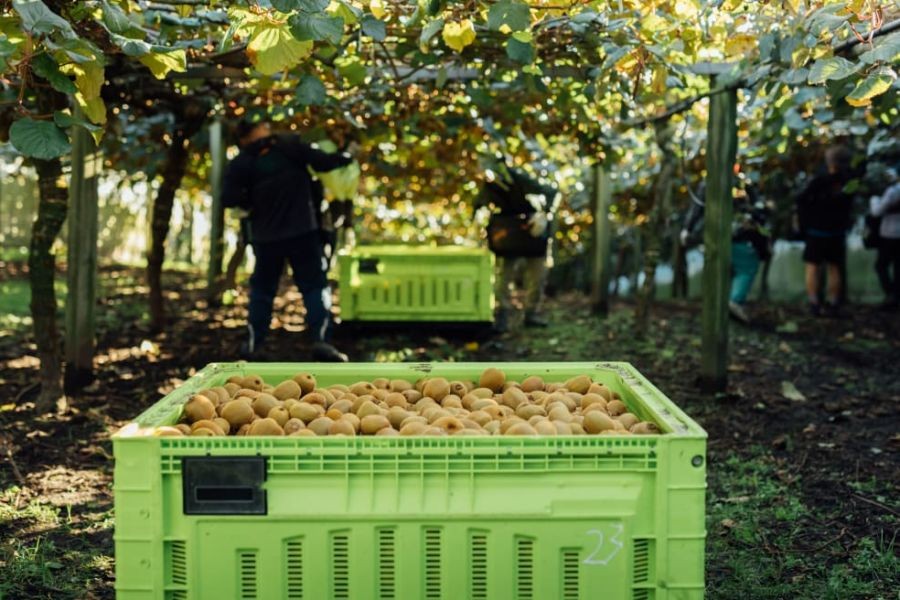New Zealand's agricultural sector is making waves on the global stage, yet many overlook the innovative strides it has taken. This article dives deep into how New Zealand's agricultural innovations are not just beneficial locally but hold substantial promise and lessons for the world. New Zealand’s approach to agriculture is not only reshaping its economy but also offering a blueprint for sustainable and technologically advanced farming practices worldwide.
How New Zealand's Agricultural Innovations Work
New Zealand, an island nation with a diverse climate and unique biodiversity, has long been known for its agricultural prowess, particularly in dairy and sheep farming. However, the real game-changer is the adoption of cutting-edge technology and sustainable practices, which are transforming traditional agriculture into a high-tech industry.
Precision Agriculture
Precision agriculture involves the use of technology such as GPS, soil sensors, and drones to monitor field variability and optimize inputs like water and fertilizers. This approach reduces waste and enhances crop yields. According to Stats NZ, dairy farms utilizing precision agriculture have seen productivity increase by up to 30% while reducing input costs by 15%.
Biotechnology and Breeding Techniques
New Zealand is also leading in genetic improvement and biotechnology. This includes the development of high-performing, disease-resistant crop varieties and livestock breeds. An example is the use of CRISPR technology to develop ryegrass that reduces methane emissions from grazing animals, aligning with New Zealand's commitment to reducing greenhouse gases.
Pros & Cons Evaluation
Pros of New Zealand's Agricultural Innovations
- Increased Efficiency: Technological advancements enable precise resource usage, leading to higher yields and profit margins.
- Environmental Sustainability: Innovations like methane-reducing ryegrass contribute to lower environmental footprints.
- Global Leadership: By setting high standards in agricultural innovation, New Zealand positions itself as a leader, influencing global practices.
- Economic Growth: The sector provides significant contributions to New Zealand's GDP and export economy, bolstered by these innovations.
- Enhanced Product Quality: Advanced breeding techniques result in better quality produce that meets international standards.
Cons of New Zealand's Agricultural Innovations
- High Initial Costs: The adoption of cutting-edge technology requires substantial upfront investment, which can be a barrier for smaller farms.
- Technological Dependence: Increased reliance on technology can pose risks if systems fail or if there is a lack of skilled personnel.
- Regulatory Hurdles: Innovations, especially in biotechnology, face stringent regulatory scrutiny, which can delay implementation.
- Market Fluctuations: Global market changes can impact the profitability of advanced agricultural products.
- Environmental Concerns: Despite sustainability efforts, some innovations may have unforeseen ecological impacts.
Real-World Case Studies
Case Study: Synlait Milk – Sustainable Milk Production
Problem: Synlait Milk, a leading dairy company in New Zealand, aimed to reduce its carbon footprint while maintaining high-quality milk production. The dairy industry is a significant contributor to greenhouse gas emissions, especially methane.
Action: Synlait implemented on-farm sustainability programs, including advanced effluent management systems and the adoption of methane-reducing technologies like the aforementioned ryegrass.
Result: These efforts led to a 22% reduction in emissions intensity over five years. The company also reported a 15% increase in milk quality, meeting new international environmental standards.
Takeaway: This case illustrates the potential for sustainable practices to not only reduce environmental impacts but also enhance product quality, providing a competitive edge in international markets.
Data-Driven Analysis
According to the Ministry of Business, Innovation, and Employment (MBIE), agriculture contributes approximately 7.1% to New Zealand's GDP, with technological advancements playing a critical role in sustaining this figure. Furthermore, Stats NZ reports that agricultural exports account for over 50% of the country's total export value, highlighting the sector's economic significance.
Advanced farming techniques and biotechnology have been pivotal in maintaining New Zealand's competitive edge, with IBISWorld noting that the agricultural technology market is expected to grow by 15% annually, driven by demand for more sustainable and efficient farming solutions.
Common Myths & Mistakes
Myth: Traditional Farming is Always More Reliable
Reality: While traditional methods are tried and tested, they are often less efficient and more resource-intensive. Modern technologies can significantly enhance farm productivity and sustainability.
Myth: Technological Innovations Are Too Expensive for Small Farms
Reality: Although initial costs can be high, government subsidies and financing options are available to support smaller farms in adopting new technologies, which can lead to long-term savings.
Myth: Biotechnology is Unsafe
Reality: New Zealand's stringent regulatory framework ensures that biotechnological innovations are safe and thoroughly tested before being implemented.
Future Trends & Predictions
Looking ahead, New Zealand's agriculture will likely continue its trajectory towards sustainability and technological integration. According to a report by Deloitte, by 2030, New Zealand aims to reduce agricultural emissions by 30%, leveraging innovations such as methane vaccines and advanced crop management systems.
Moreover, the global demand for sustainable and ethically produced food is projected to rise dramatically, offering New Zealand a unique opportunity to capitalize on its clean, green image and advanced agricultural practices.
Conclusion
New Zealand's agricultural innovations are not just a local triumph but a global opportunity. By embracing technology and sustainability, New Zealand sets a benchmark for the world to follow. Whether it’s reducing emissions or enhancing product quality, these innovations offer solutions to some of the most pressing challenges in agriculture today.
What’s your take on New Zealand’s agricultural future? Share your insights below and join the discussion on how these innovations can reshape global agriculture!
Frequently Asked Questions (FAQ)
How does New Zealand's agricultural innovation impact the economy?New Zealand's agricultural innovations contribute significantly to the economy, with agriculture accounting for over 7% of GDP and more than 50% of export value, according to MBIE and Stats NZ.
What is a common misconception about agricultural technology in New Zealand?A common myth is that technological innovations are too expensive for small farms. However, with government support and long-term savings potential, these technologies are increasingly accessible and beneficial.
What are the future trends in New Zealand agriculture?Future trends include a focus on reducing emissions, with targets set to cut agricultural emissions by 30% by 2030, leveraging innovations like methane vaccines and advanced crop management systems.
Related Search Queries
- New Zealand agriculture technology
- Sustainable farming practices in NZ
- Precision agriculture benefits
- NZ agricultural exports
- Biotechnology in New Zealand farming
- Future of farming in New Zealand
- Environmental impact of NZ agriculture
- Economic impact of agriculture in New Zealand
- Innovative farming techniques NZ
- Agricultural policy New Zealand


























